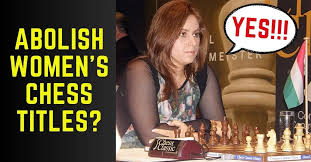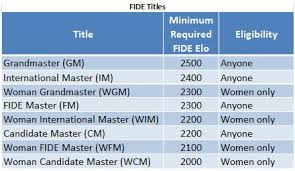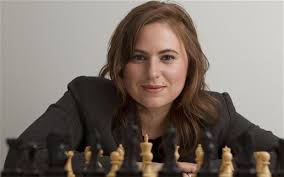

Chess is often regarded as a universal game, a battlefield of intellect where gender should, in theory, play no role. Yet, the existence of women-only titles such as Woman Grandmaster (WGM) or Woman International Master (WIM) has sparked ongoing debates within the chess community. These titles, introduced to encourage female participation, now find themselves at the heart of discussions about equity, merit, and the future of chess.
A Brief History
Women-specific titles were introduced by FIDE (the International Chess Federation) in the mid-20th century. At the time, women faced significant societal barriers to participation in chess and other intellectual pursuits. The titles aimed to create a more inclusive environment by providing female players with achievable goals and recognition, separate from the overwhelmingly male-dominated competitive chess world. Learn more about FIDE’s titles.
Today, FIDE offers women-specific titles such as WGM and WIM, alongside the open titles of Grandmaster (GM) and International Master (IM). Notably, female players can also compete for open titles, and many do, but women’s titles have lower rating requirements, which has become a point of contention.
Arguments For Women-Specific Titles
1. Encouraging Participation
Proponents argue that these titles help bridge the gender gap in chess. They provide an achievable stepping stone for women, who historically have had fewer resources, role models, and opportunities in chess. By offering intermediate milestones, women-specific titles can inspire more girls to pursue the game seriously.
2. Visibility and Representation
Having prominent women players with recognizable titles can inspire younger generations. Titles like WGM signal the presence of women in top-level chess, fostering a sense of community and visibility for aspiring female players. Connect with inspiring female chess players on LinkedIn.
Criticisms of Women-Specific Titles
1. Perceived Inferiority
Critics argue that the separate titles reinforce a perception that women are inherently weaker players, which is not supported by any inherent difference in intellectual capability. By setting lower rating requirements for women’s titles, these titles may unintentionally perpetuate stereotypes.
2. Inequitable Recognition
Some players and commentators question whether women-specific titles undervalue the achievements of female players. For instance, a WGM title has a significantly lower rating requirement than a GM title, despite both being “grandmaster” titles in name.
3. Outdated Barriers
With growing access to resources and increasing opportunities for women in chess, some argue that the original justification for women-only titles is no longer valid. They advocate for abolishing these titles in favor of a fully integrated system.
Moving Toward Equity
The controversy raises larger questions about how to best achieve gender equity in chess. Some suggestions include:
1. Expanding Access and Opportunities
Efforts should focus on increasing funding for women’s tournaments, creating mentorship programs, and providing resources for girls at the grassroots level. This addresses systemic barriers rather than focusing solely on titles. Discover mentorship programs on LinkedIn.
2. Reevaluating Titles
One possible compromise is to retain women-specific titles but align their rating requirements with open titles. This approach could preserve the motivational aspect while eliminating the perception of a double standard.
3. Highlighting Role Models
Prominent female players who have achieved open titles, such as Judit Polgár, can be celebrated as examples of what is possible without the need for separate titles. This can inspire a new generation of players to aim higher. Read more about Judit Polgár’s achievements.

Conclusion
The debate about women’s titles in chess reflects broader societal discussions about equity, representation, and meritocracy. While these titles have played an important historical role in encouraging female participation, it is worth questioning whether they remain the best tool for achieving gender equality in modern chess. The ultimate goal should be a world where every player, regardless of gender, feels empowered to compete at the highest levels of the game. Join the discussion on LinkedIn.

Chessby: Connecting Chess Enthusiasts Worldwide
Chessby is a unique platform designed to bridge the gap between the digital and physical worlds of chess. Its main purpose is to connect chess enthusiasts by helping them find local places, events, and players for in-person games. Whether you’re a casual player looking for a friendly match at a nearby café or a competitive player seeking tournaments, Chessby provides the tools to build meaningful connections through chess
